Preparing for CSRD: ELEKS’ Journey Through Double Materiality and ESRS Alignment

Summary
Facing CSRD obligations, ELEKS sets out to understand its sustainability impact
Starting January 2024, the EU’s Corporate Sustainability Reporting Directive (CSRD) requires eligible companies to disclose risks, opportunities, and impacts related to social, environmental and governance issues. These companies must report in line with the European Sustainability Reporting Standards (ESRS), which outline how to collect and disclose ESG-related data.
Since ELEKS’ parent entity is subject to regulations starting January 2025, the company is required to report under ESRS. As a first step toward CSRD compliance, ELEKS conducted a Double Materiality Assessment (DMA), which aims to evaluate both the financial risks and opportunities of sustainability issues, and the impacts of the company’s activities on the environment, people, and society (ESG).
Key objectives of the assessment included:
- Conducting an Impacts, Risks, and Opportunities (IRO) analysis for our business
- Determining which ESRS metrics are relevant for ELEKS
- Reviewing available data and existing documentation
- Identifying gaps in policies and targets
- Informing the development of a transformation roadmap to enhance alignment with ESRS standards
- Providing internal stakeholders with a clear picture of the ESG landscape at ELEKS
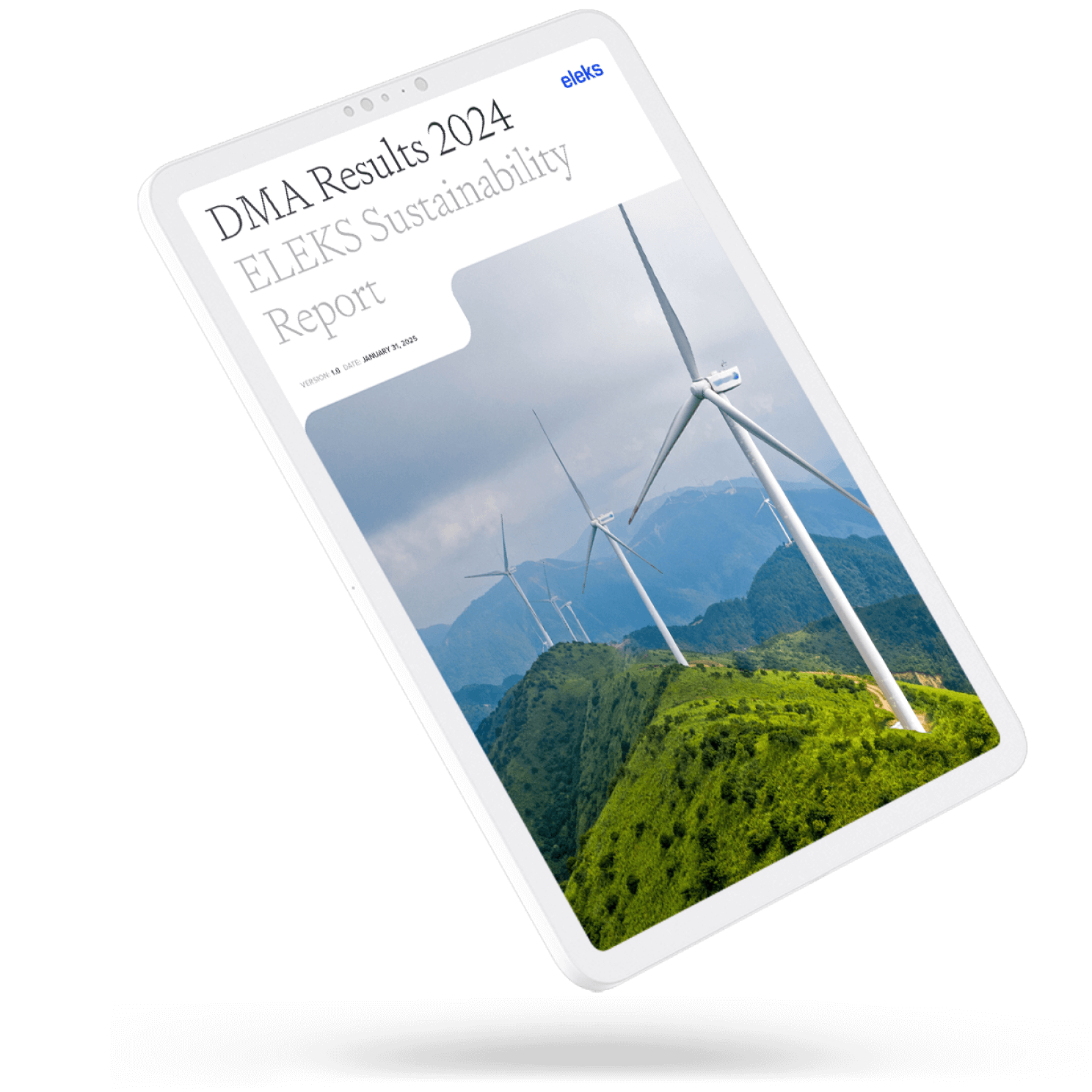
A structured, stakeholder-led assessment of ESG relevance and materiality
The ELEKS Sustainability Practice team began by reviewing ESG reporting standards to determine the relevance of each metric to ELEKS’ operations. The scope of the assessment covered over 800 disclosure requirements across the following ESRS sections:
- General Disclosures: ESRS 2
- Environment: E1–E5
- Social: S1–S4
- Governance/ Business Conduct: G1
The Double Materiality Assessment (DMA) was executed through an iterative and collaborative methodology grounded in stakeholder theory and best practices in sustainability governance. The process commenced with the systematic identification of internal stakeholders, followed by the development of tailored guidance materials to clarify disclosure obligations under relevant regulatory frameworks.
To foster meaningful participation, the team employed a facilitative engagement strategy emphasizing capacity-building, shared conceptual understanding, and sustained stakeholder involvement. This approach was designed to enhance the quality and consistency of input while promoting long-term alignment with organizational sustainability objectives.
In recognition of stakeholders’ time constraints, the core sustainability team assumed responsibility for preparatory analyses and post-engagement synthesis. This ensured that stakeholder interactions remained focused, efficient, and strategically valuable, while maintaining analytical integrity and continuity throughout the assessment process.
The collaborative process included:
- Sustainability Reporting Workshop
An introductory session covering sustainability fundamentals and DMA goals across ESG domains. Stakeholders self-assigned to topic-specific teams, which then operated independently throughout the DMA phase.
- Individual Assessment and Team Discussion
Each team member evaluated sustainability metrics individually. Then, in group meetings, members reviewed results, discussed open questions, and reconciled differences to build mutual understanding.
- Consensus Building
Teams reached consensus through discussion to ensure consistency and alignment in responses.
As part of the sustainability assessment process, the team applied a structured approach to identify and evaluate relevant environmental, social, and governance (ESG) topics. This began with a screening of sustainability datapoints aligned with the European Sustainability Reporting Standards (ESRS), ensuring a comprehensive overview of potential areas of impact.
Following this, potentially material topics were identified based on their relevance to ELEKS’ operations and broader stakeholder expectations. For each topic, associated risks, impacts, and opportunities were defined to understand their significance from both an internal and external perspective.
The analysis included an evaluation of negative and positive impacts through the lens of impact materiality, taking into account the likelihood and severity of each impact. In parallel, a financial materiality assessment was conducted to determine the potential financial implications of these risks and opportunities, considering both their probability and potential economic effect. This dual-perspective approach supports a balanced understanding of sustainability priorities, guiding strategic decision-making and transparent reporting.
The outcome was a comprehensive report highlighting key findings, the relevance of each sustainability metric to ELEKS, and recommendations for improving alignment with ESRS requirements.
Following the results of the Double Materiality Assessment (DMA), the sustainability team progressed to the sustainability reporting phase under the ESRS framework. At this stage, the primary focus was on data collection and analysis, which involved establishing processes to ensure data quality and consistency. Then, ELEKS produced a pilot ESRS-aligned sustainability report for the 2024 reporting year, serving as a test run ahead of the formal 2025 disclosure.

Stronger ESRS readiness, deeper engagement, and a foundation for sustainable growth
The assessment and resulting report reflect ELEKS’ ongoing commitment to transparency and sustainability, recognizing these as vital to the company’s resilience and future development. We remain dedicated to integrating sustainability into core business practices and fostering positive environmental and social impacts.
The collaborative stakeholder engagement method proved highly effective in deepening participants’ understanding and ownership of sustainability topics while improving the results of the assessment by broadening the perspectives.
By conducting the assessment from start to finish, the ELEKS Sustainability Team gained invaluable experience in navigating the complexities of the ESRS framework, strengthening cross-functional collaboration, and building a solid foundation for future sustainability reporting efforts.
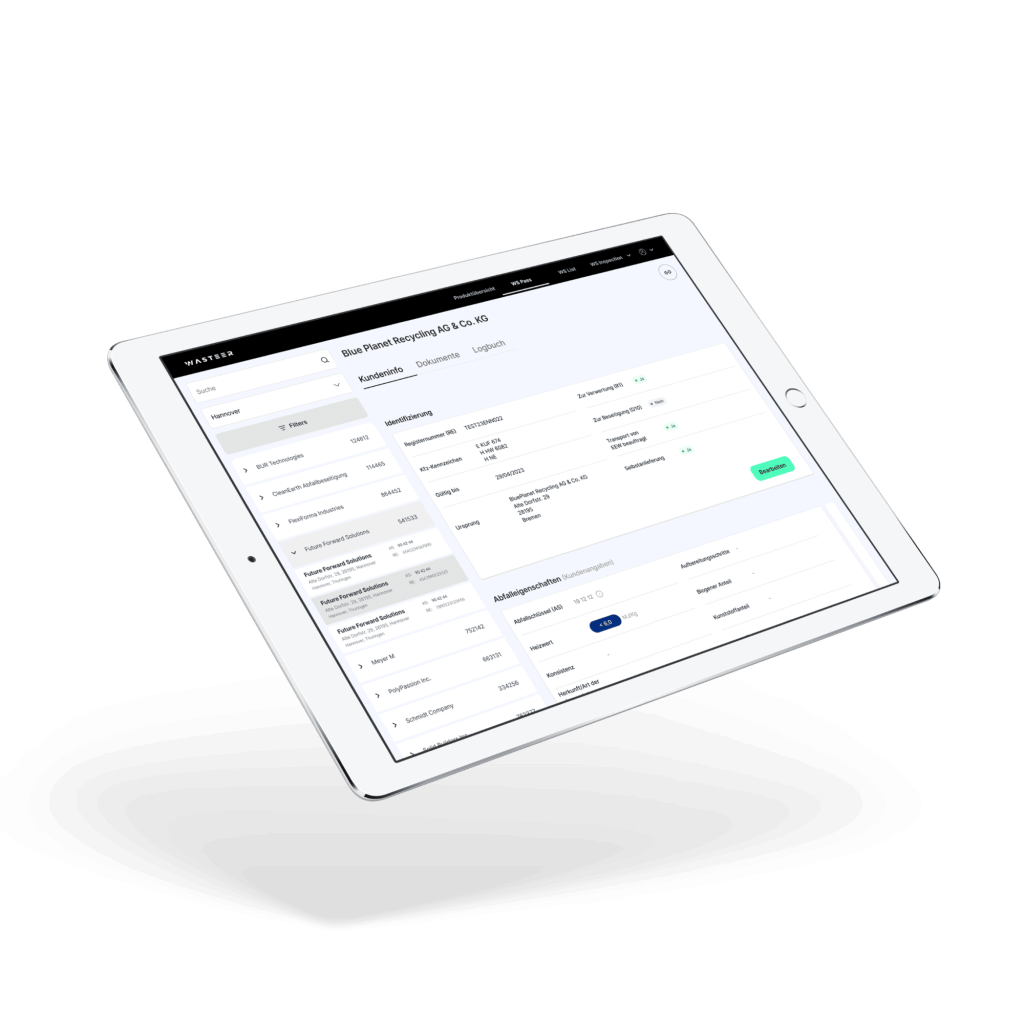

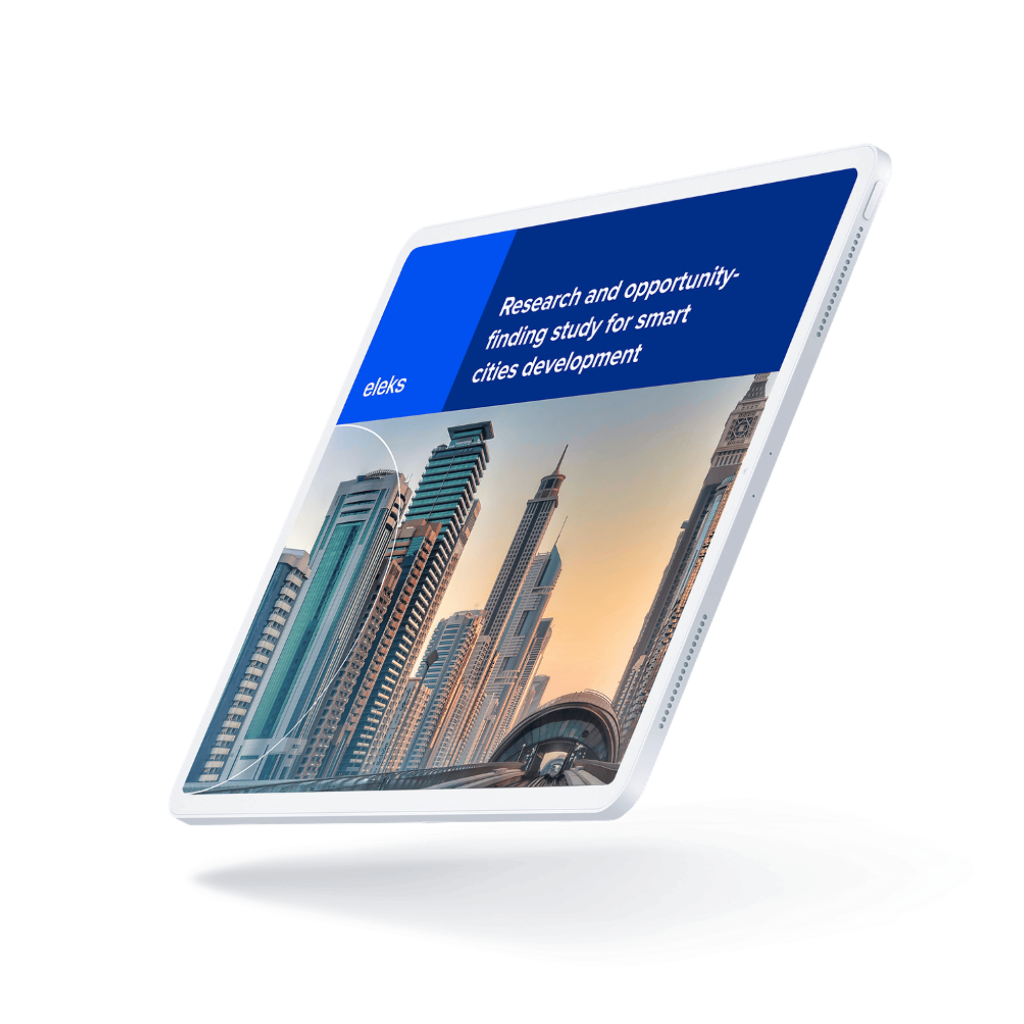
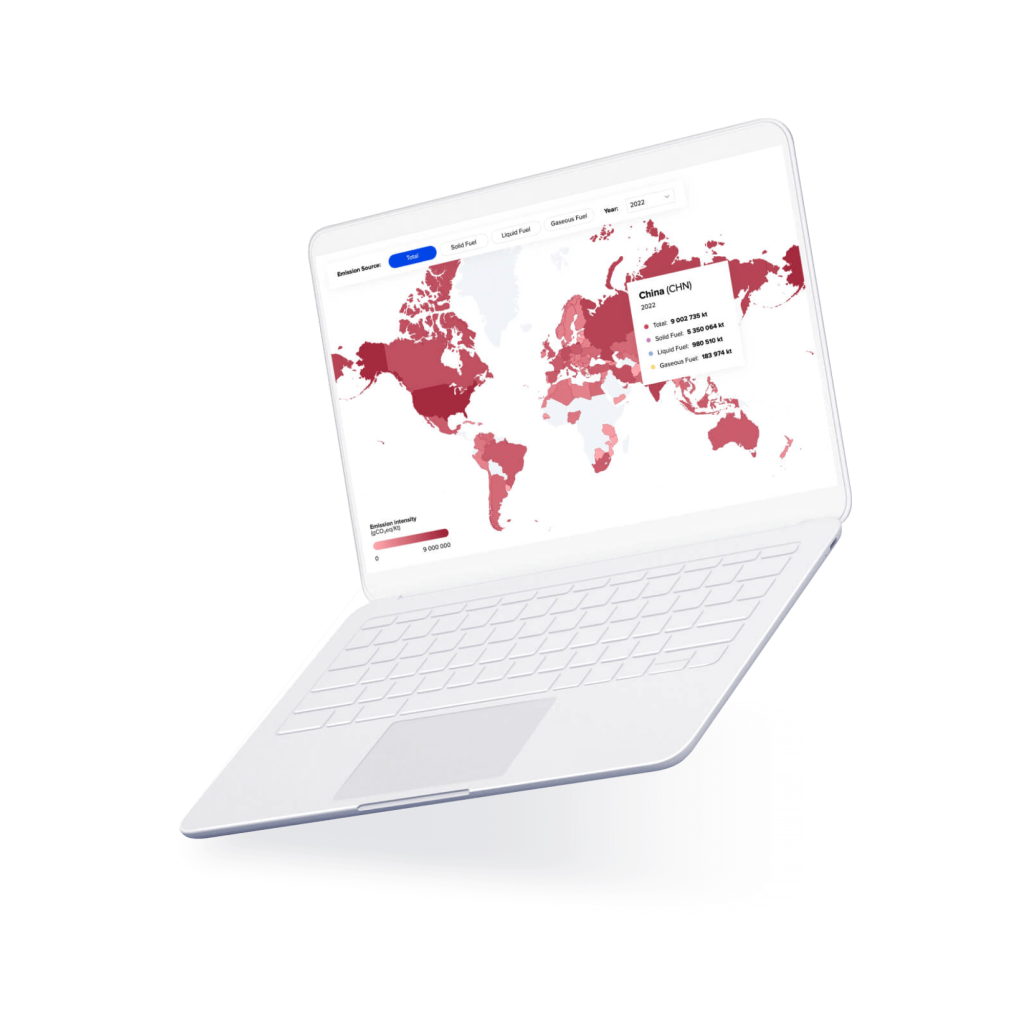
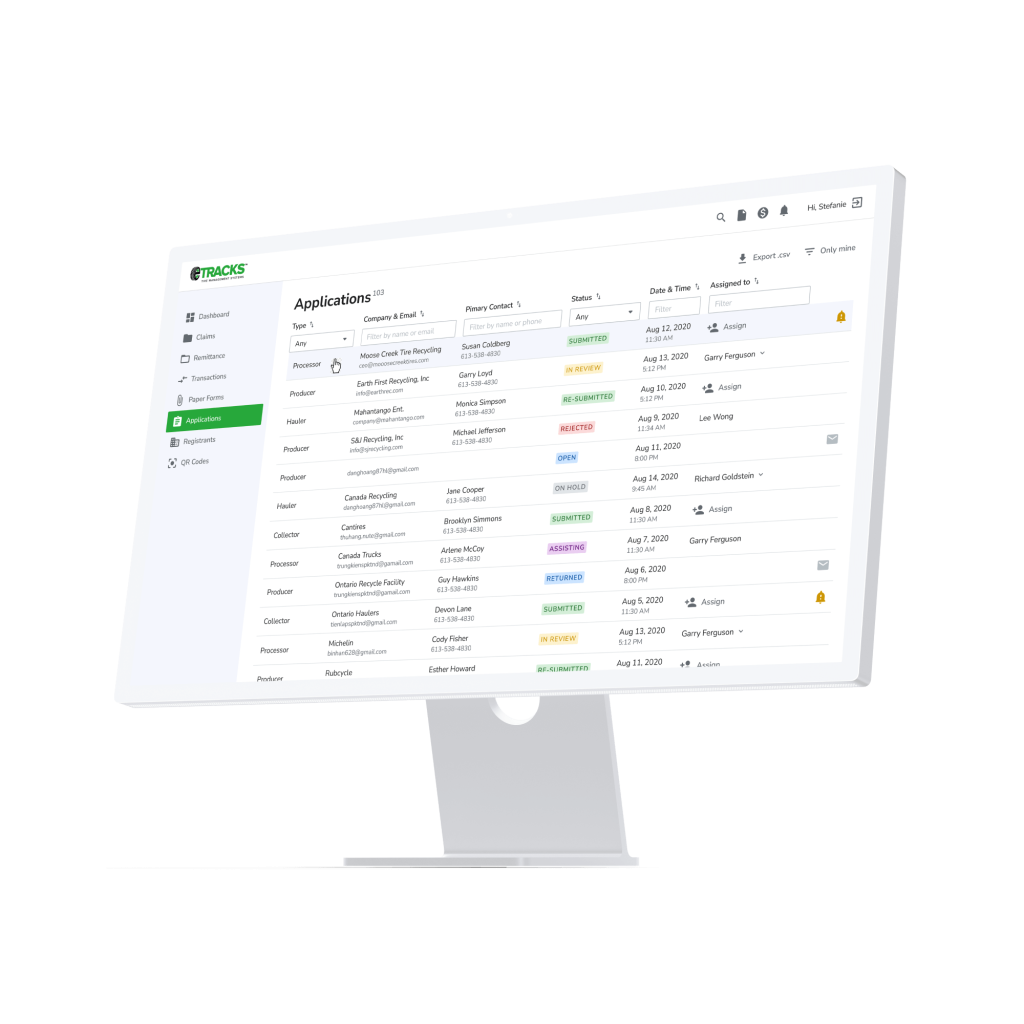
The breadth of knowledge and understanding that ELEKS has within its walls allows us to leverage that expertise to make superior deliverables for our customers. When you work with ELEKS, you are working with the top 1% of the aptitude and engineering excellence of the whole country.

Right from the start, we really liked ELEKS’ commitment and engagement. They came to us with their best people to try to understand our context, our business idea, and developed the first prototype with us. They were very professional and very customer oriented. I think, without ELEKS it probably would not have been possible to have such a successful product in such a short period of time.

ELEKS has been involved in the development of a number of our consumer-facing websites and mobile applications that allow our customers to easily track their shipments, get the information they need as well as stay in touch with us. We’ve appreciated the level of ELEKS’ expertise, responsiveness and attention to details.
